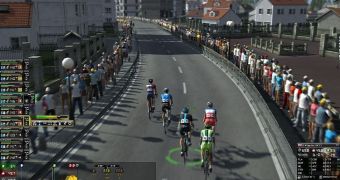Traditionally, the weekends for the duration of the three weeks of Le Tour de France are reserved for mountain stages, those who have the potential to shake up the general classification and decide the final winner.
After seven full stages (remember, no prologue was featured this year), the organizers at the ASO have decided to first have the peloton tackle the mountains in the middle of France, which tend to have lower heights and include smaller gradients to fight against.
This first stage in the Vosges has 130 kilometers of flat racing before three climbs are delivering in quick succession, two of them second category, and the final one third category.
They are: the Croix des Moinats, the Col de Grosse Pierre, with sections that go over 15%, and the final climb to La Mauselaine, a shot and sharp 1.8 km ride at at 10.3%.
Le Tour de France will not be won, in the real world or the virtual one, during this stage, but a team leader who is not well fed, well protected by his team and well prepared tactically can certainly lose the race here.
I have the Yellow Jersey and will try to protect it while also testing my strength against those of the other favorites.
Unfortunately, I managed to do something truly stupid during the seventh stage of Le Tour: I was not able to deliver the water bottles that my leading riders needed, which affected their performance.
Voigt was supposed to handle the process, but I sent him back to restock too late, which meant that he was forced to try and advance in the peloton on a hard climb and ran out of energy at the worst moment.
This means that he failed to give the much-needed water to both Schleck and Cancellara, which in turns means that they were performing under their capabilities on the final climb.
I finally lost more than 2 minutes on the leader of the pack and the Maillot Jaune, which is a double blow that I might never recover from fully.
Cyclists require a lot of food to have the energy to deal with the toughest stages, and plenty have suffered because they failed to make sure they were well stocked before climbs.
Pro Cycling Manager 2014 actually does a good job of simulating this aspect of the sport, despite the abstraction that sees bags filled with food turn into mere water bottles.

 14 DAY TRIAL //
14 DAY TRIAL // 